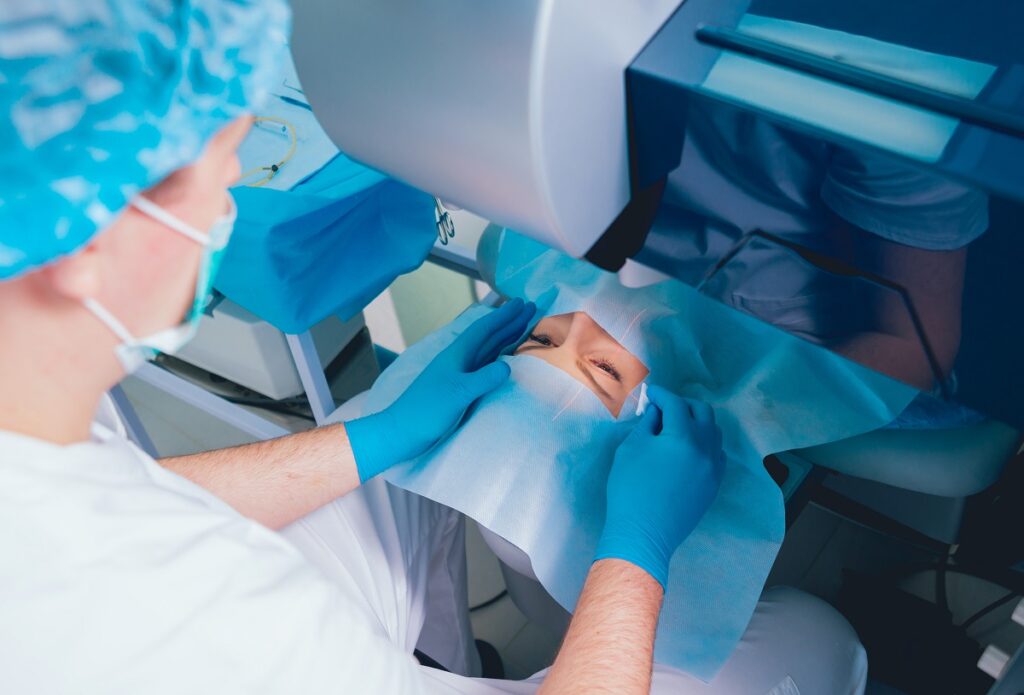There is still much to be learned about COVID-19 and how it is transmitted from one person to another. We do know that it is spread through person-to-person close contact and droplets of water vapor, mucus, and saliva from the mouth and nose.
When a person exhales, and if they have coronavirus, the water vapor is spread throughout the air. Then if another person who is not wearing a face mask breathes the air in, they could get the virus. The amount of space a person’s respiratory water vapor can spread is about six feet with face masks. As such, this is why the CDC and WHO recommend six feet for social distancing.
One question that has arisen during the pandemic is about whether coronavirus and your eyes are a potential entry point. What we do know is that people who wear glasses and contacts tend to touch their faces more often.
They might need to adjust their glasses or fix a contact that has slipped. They could have an itch or rub their eyes when they are strained. These types of things could cause a person to get infected in some cases. For example, the person touched a surface where someone coughed or sneezed and was infected and which had not been sterilized.
When they bring their hand up near their face, they could inhale the virus through the nose or, if they touch their eye, they allow it to enter through the conjunctiva—the thin, clear membrane on the front of the eye.
The CDC, WHO, and AAO (American Academy of Ophthalmology) have all stressed to avoid touching your face. Equally, these organizations have recommended frequent handwashing with soap for at least 30 seconds or longer. You should also dry your hands on a paper towel and not a cloth towel or an air dryer. Frequent hand washing can help remove viruses from the hands.
What Can I Do to Avoid Touching My Face So Much?
If you wear glasses or contacts, one viable solution is to speak to your ophthalmologist about whether you are a candidate for laser vision corrective eye surgery. There are many different types of procedures other than LASIK that you may qualify for to correct your vision problems.
Imagine not having to wear glasses or contacts again! By eliminating glasses and contacts, you won’t feel the need to touch your face as frequently, so you can help do your part to keep yourself safe and reduce risks of contracting COVID-19 through the nose or eyes.
Isn’t Laser Eye Surgery Expensive and Not Covered by Eye Insurance?
Most of the time, laser eye surgery is not covered by your vision insurance. However, depending on your policy and reason for laser surgery, it might be covered. Alternative options are available to help make LASIK and other laser vision surgeries affordable for everyone.
One option is to use your FSA or HSA pre-tax dollars if you have one of these plans. Laser surgery is an allowed expense. Another option is to apply for special financing to pay for your surgery. Financing the surgery allows you to make small monthly payments that can easily fit into your budget.
If you are searching for an “ophthalmologist near me” in Paso Robles, Santa Maria, or San Luis Obispo, look no further than ADV Vision Centers. We offer a wide range of laser eye correction surgery options, as well as special 24-month financing with 0% interest.
To schedule a consultation at one of our locations to find out what laser eye surgery procedures you qualify for, please feel free to call us at (805) 987-5300 today!









